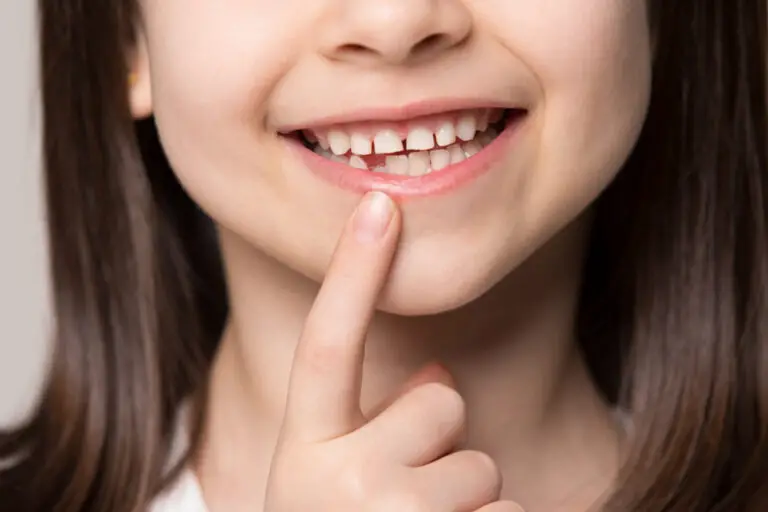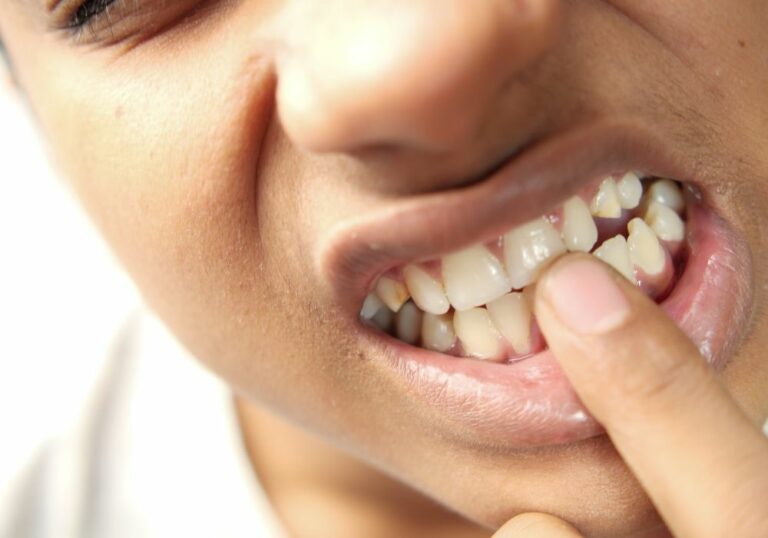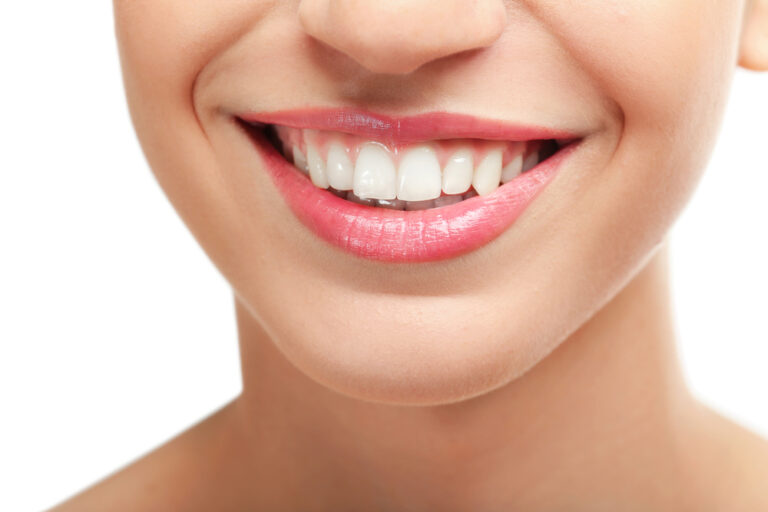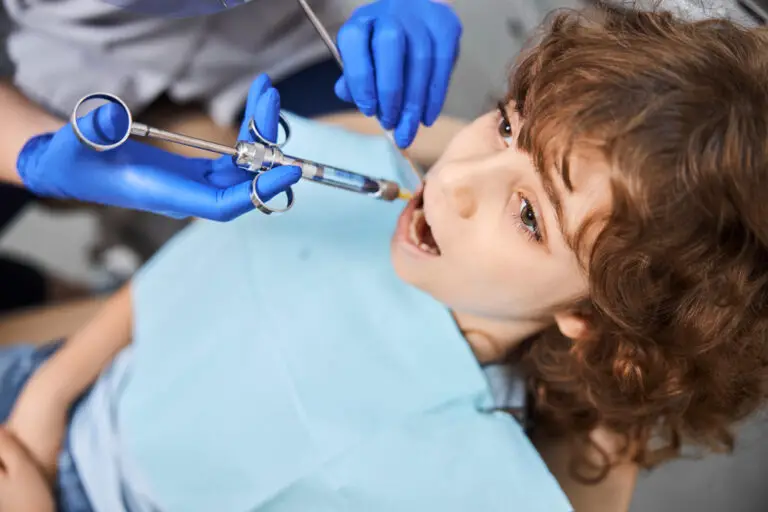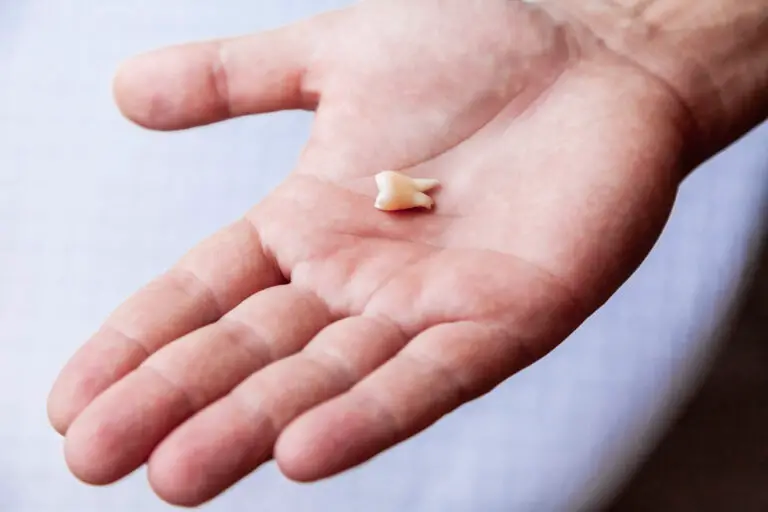Experiencing ear pain after a tooth extraction is an unusual but common occurrence. The nerves that connect your teeth to your brain also relay sensation information to other areas like your ears. Irritating these nerves during an extraction can cause referred pain and discomfort.
Understanding the anatomy behind this phenomenon and the proper treatments can help you find relief.
Anatomy of the Nerves Supplying Teeth and Ears
Your teeth and ears share common nerves that allow pain signals to cross over between the two areas. The main nerves involved are:
Trigeminal Nerve
The trigeminal nerve is the fifth cranial nerve and is responsible for providing sensation to most of the face, including the teeth, gums, mouth, cheeks, lips and nasal cavity.
It originates in the brainstem and has three main branches:
- Ophthalmic – Supplies feeling to the eyes, forehead and sinuses
- Maxillary – Connects to the upper jaw, cheeks, nose and upper teeth
- Mandibular – Links to the lower jaw, lips, chin and lower teeth
Facial Nerve
The facial nerve, also called the 7th cranial nerve, controls facial muscles involved in expressions. But it also carries sensory information from the ears, mastoid process, and back of the head.
The trigeminal and facial nerves interconnect via small nerve branches around the jaw and ears.
Glossopharyngeal Nerve
This supplies the back of the tongue, throat, tonsils, middle ear, and salivary glands. It has connections to the trigeminal and vagus nerves.
Vagus Nerve
The vagus runs from the brain down through the face, neck and thorax. It activates the gag reflex, swallowing, and speech. The vagus also carries some sensory signals from the outer ear up to the brain.
During a tooth extraction, trauma and inflammation to the branches of the trigeminal nerve can cause referred pain signals to be sent up other pathways like the facial and vagus nerves – leading to ear pain.
How Extractions Cause Ear Pain
There are several ways that getting a tooth extracted can irritate nerves and result in ear pain:
Direct Nerve Damage
The process of removing a tooth often requires manipulating and retracting soft tissues, which can pinch, stretch or partially damage the trigeminal nerve branches in that area. This can make the nerves hypersensitive, causing them to overreact and send excessive pain signals up to the ears.
Inflammation and Swelling
After an extraction, inflammation and swelling are normal parts of the healing process as the body repairs tissues. However, this inflammation can compress or irritate the trigeminal, facial and vagus nerves that pass through the area. The swelling puts pressure on nerve fibers, making them transmit pain signals.
Infection
An extraction leaves an open wound in the mouth which allows bacteria to enter and potentially cause an infection. Infections around the tooth socket or jaw can activate immune responses which make nerves inflamed and sensitive. This heightened nerve sensitivity then refers pain to the ears.
Sinus Issues
Tooth extractions can sometimes disrupt sinus drainage pathways or directly disturb sinonasal nerves. This makes some patients prone to developing sinus congestion or infections after an extraction, which then causes associated ear pain and pressure.
TMJ Irritation
The temporomandibular joints (TMJ) that connect the jawbone to the skull sit very close to the paths of the trigeminal and facial nerves. Existing TMJ problems may worsen due to the trauma and swelling from an extraction, leading to referred ear pain.
Trapped Nerves
In some cases, the nerves may get directly pinched between the extracted tooth socket and jawbone as the area heals and shifts. This pinched nerve effect results in sharp, stabbing ear pain.
Dry Socket
A dry socket, or alveolar osteitis, happens when the blood clot at the extraction site fails to develop or gets dislodged too soon. The exposed bone irritates nerves and makes them transmit more frequent pain signals, which can radiate up to the ear.
Common Characteristics of Post-Extraction Ear Pain
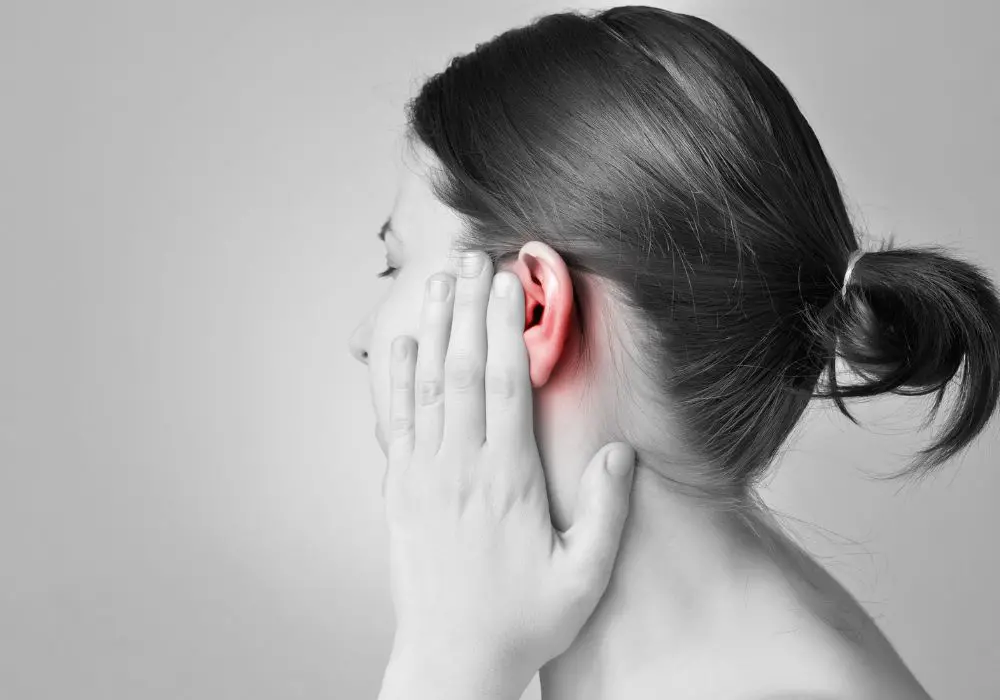
Ear pain stemming from a recent tooth extraction has some typical qualities:
- Occurs on the same side of the head as the extracted tooth
- Starts 12 to 48 hours after the procedure as the anesthetic wears off
- Consists of a dull, throbbing ache or sharp, stabbing pain
- Feels worse when chewing or opening the mouth wide
- Worsens at night or when lying down as fluid pools and nerves are less distracted
- Radiates into the jaw, sinuses, neck, temple or side of the face
- Comes and goes in waves, but may briefly disappear with position changes
- Accompanied by ear fullness, pressure sensation, or muffled hearing
- Anti-inflammatory medication, cold compresses, and pain killers provide some relief
While unpleasant, this type of referred ear pain tends to gradually diminish within 5-7 days as the extraction site heals. But severe or worsening ear pain can signify complications, requiring prompt medical attention.
How to Get Relief from Post-Extraction Ear Pain
If you develop ear pain following a tooth extraction, here are some effective remedies to try at home:
Cold Compresses
Applying cold packs or an ice bag wrapped in a towel to the jaw area reduces inflammation and offers numbness. Use for 10-15 minutes at a time, several times a day as needed. The cold helps slow nerve impulses. Don’t place ice directly on skin.
Pain Medication
Over-the-counter nonsteroidal anti-inflammatory drugs (NSAIDs) such as ibuprofen (Advil) or naproxen (Aleve) can relieve swelling, inflammation and pain. Acetaminophen (Tylenol) also eases discomfort. Use as directed.
Oral Rinses
Gently swishing warm salt water or an antiseptic mouth rinse around the extraction site 2-3 times a day keeps it clean and prevents infection. Don’t vigorously swish for a few days as this can dislodge the clot.
Ear Drops
Applying a numbing ear drop containing benzocaine or lidocaine in the ear canal provides some temporary pain relief, but don’t overuse.
Dental Pain Gel
Topical oral gels like Orajel applied to the gums near the extracted tooth can offer localized numbing for a couple hours. Q-tips can aid application.
Soft Diet
Sticking to cool, mushy foods like yogurt, apple sauce, and ice cream for a few days prevents needing to chew, limiting pain. Don’t eat near the extraction site.
Massage
Gently massaging the jaw, neck, and area around the ear may relax muscles putting pressure on nerves. Use light, careful pressure.
Warm Compress
A warm washcloth or heating pad against the jaw provides relaxation, increases blood flow, and eases stiffness from swelling. Don’t apply direct heat.
If these methods don’t adequately control the discomfort within several days, call your dentist. They may prescribe a short course of stronger prescription pain or anti-inflammatory drugs to help settle the nerves during healing.
Warning Signs to Seek Medical Care

You should arrange an urgent dental visit if any of the following signs accompany the ear pain:
- Severe throbbing pain that comes on suddenly
- Fever higher than 101°F
- Fatigue, chills, and body aches
- Redness, bleeding or pus around the extraction site
- Swollen lymph nodes in your neck
- Sudden loss of hearing in the ear
- Dizziness, vertigo or ringing in the ears
- Facial muscle drooping
- Difficulty swallowing or opening your mouth
These indicate possible complications like an abscess, osteomyelitis, or spread of infection that requires prompt medical attention and treatment. Ignoring worsening symptoms risks serious consequences.
How Long Does Post-Extraction Ear Pain Last?
Most patients find the intensity of ear pain peaks between 3 to 5 days after having the tooth pulled, as swelling and inflammation reach their height. As the tissues gradually heal over a week to 10 days, the ear pain steadily improves.
However, residual mild aching, pressure, and odd nerve sensations may come and go for up to 2 to 4 weeks as the nerves finish mending. The duration depends on the amount of trauma and your body’s natural healing ability.
See your dentist promptly if significant ear pain persists more than 7-10 days without any improvement. This may necessitate treatment for complications like dry socket, infection, or abscess.
Does Tooth Extraction Cause Permanent Ear Damage?
In the vast majority of cases, the ear pain that occurs after an extraction is temporary and causes no permanent damage or hearing loss. The pain stems from stretched nerves and inflammation, which resolve as healing occurs.
However, it’s possible for an extraction complication like infection, hemorrhage, or fractured jaw to injure the facial nerve or inner ear structures, resulting in some permanent hearing impairment or tinnitus. But this is extremely rare.
Likewise, extraction-related nerve pain that exceeds 6 months is unlikely to fully resolve on its own without intervention. But various treatments can successfully manage chronic post-extraction neuralgia.
Ways to Prevent Ear Pain During Extraction Healing
You can take steps before and after the procedure to limit inflammation and nerve irritation for a more comfortable recovery:
- Follow all pre and post-op instructions from your dentist carefully
- Keep the extraction site very clean by gently rinsing with salt water
- Take over-the-counter pain and anti-inflammatory medications as recommended
- Limit strenuous activity for several days after the extraction
- Apply cold compresses to the jaw and ear area
- Eat a soft diet, chew carefully, and avoid very hot or cold items
- Don’t smoke, drink alcohol, or use straws as this can dislodge the clot
- Sleep with your head elevated on extra pillows
- Avoid air travel or scuba diving until healed
- Use caution when brushing teeth near the extraction site
- Call the dentist if symptoms worsen or don’t start improving within 5 to 7 days
Proper remedial care and close monitoring after an extraction can prevent avoidable issues and discomfort during your recovery. But some degree of minor ear irritation is expected.
Seeking Medical Treatment for Severe Ear Pain
If over-the-counter pain remedies and general care don’t relieve your ear and jaw pain within a week, it’s important to seek dental treatment. The dentist will examine the extraction site and check for any complications.
They may order imaging tests to look for signs of infection or abscess development. Bloodwork can also check for uncontrolled diabetes impacting healing.
Treatment options for persistent post-extraction ear pain include:
- Prescription pain medications – Stronger drugs like tramadol or hydrocodone can better calm inflamed nerves.
- Antibiotics – If an infection is causing the pain, antibiotic pills or rinses clear the bacteria.
- Decongestants or antihistamines – These dry out sinuses and relieve related pressure.
- Steroid injection – Cortisone shots reduce localized inflammation putting pressure on nerves.
- Endodontic surgery – If a small root fragment was left behind, it may require surgical removal.
- Extraction site irrigation – Flushing out debris curbs infection.
- Natural remedies – Acupuncture, massage therapy and supplements can accelerate healing.
- Nerve treatments – Severe neuralgia may need specialized nerve blocks, electrical stimulation, or anticonvulsants.
The dentist will determine the most suitable options depending on the source of your ongoing symptoms. Prompt treatment prevents small problems from worsening over time.
When to See an ENT Doctor

If you develop hearing loss, severe vertigo, or ear discharge after an extraction, it’s important to see an ear, nose and throat (ENT) physician. They can evaluate your ear for damage and provide appropriate therapies.
Signs that warrant seeing an ENT specialist include:
- Pus draining from the ear
- Ringing, buzzing or echoing in the ears
- Reduced hearing in one or both ears
- Extreme dizziness, balance problems, nausea
- Facial weakness or drooping
- Ear pain combined with fever and chills
These indicate a possible middle or inner ear infection, perforated eardrum, or other issue requiring ENT expertise. An ENT doctor has specialized tools to examine inside the ear canal. They may prescribe ear drops, extensive antibiotics, or surgery if needed.
Conclusion
Experiencing some odd ear sensations after a tooth extraction is fairly common due to the network of nerves spanning the mouth and ear. However, severe or persistent ear pain beyond the first week warrants medical evaluation.
Gently rinsing the area, taking OTC pain relievers, applying cold compresses, and eating soft foods can alleviate mild symptoms as the area heals over 7 to 10 days. Avoiding smoking and strenuous activity also supports recovery.
Call your dentist if you have signs of infection or no pain relief within 5-7 days. Most post-extraction ear pain resolves fully with proper self-care, but medical treatment may become necessary in some cases for complete symptom resolution.
Frequently Asked Questions
How long does ear pain last after a tooth extraction?
Most patients have ear pain that peaks in severity 3 to 5 days after the extraction procedure. It then slowly improves over 7 to 14 days as healing progresses. Mild discomfort may come and go for up to a month.
What side of the head will ear pain be on after extraction?
The ear pain almost always occurs on the same side as the extracted tooth, due to the network of nerve connections between the mouth and ears on both sides. The nerves cross over in the brainstem.
Can a tooth infection spread to the ear?
It’s very rare, but yes an untreated tooth abscess or infection of the jawbone can potentially spread. This requires extensive infection into deeper facial tissues. Prompt dental treatment prevents this.
Does a tooth extraction cause ear popping?
The trauma of extraction can cause muscles spasms that make the Eustachian tubes constrict, resulting in temporary feelings of ear fullness, pressure changes, and popping sensations. This usually resolves as swelling goes down.
What happens if a tooth extraction hits a nerve?
If a nerve is bruised, stretched, or cut during extraction it becomes hypersensitive, sending excessive pain signals up to the ear and face. This nerve irritation is usually temporary and settles down within a few weeks with proper recovery care.

